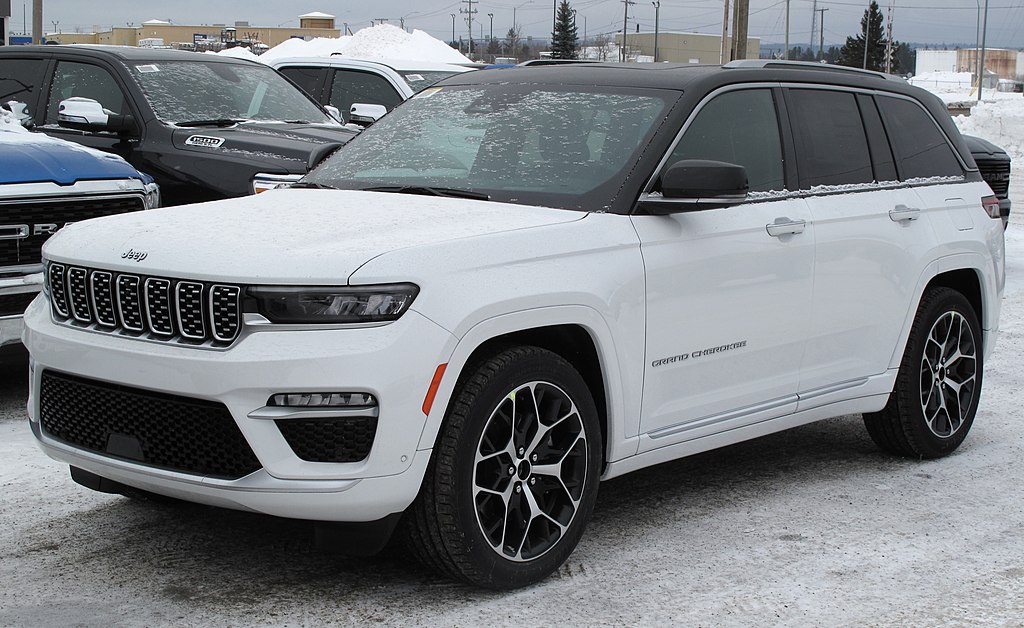Smart Ways to Find the Best Luxury SUV Deals
Scoring a strong deal on a luxury SUV doesn’t have to be complicated. Whether you’re eyeing a mid-size family hauler or a flagship with every amenity, you can combine market timing, financing strategy, and smart comparison shopping to trim thousands off the total cost. Below, you’ll find simple, practical steps to understand incentives, weigh lease versus finance, and benchmark real-world pricing so you can shop confidently with local services or in your area.

What counts as a luxury SUV deal?
A “deal” is less about a single discount and more about the full package. Look at the final out-the-door price (vehicle price plus taxes, fees, and add-ons), the value of any trade-in, and the cost of money (APR on a loan or money factor on a lease). Manufacturer incentives—such as loyalty or conquest cash, dealer cash, or limited-time finance offers—can meaningfully reduce total cost. Also weigh features included at a given trim: a higher trim discounted heavily may deliver better value than a base model with few options.
Lease vs finance: which saves more?
Leasing typically offers lower monthly payments compared with financing the same vehicle, because you pay for projected depreciation during the lease term, not the entire vehicle. For drivers who like newer tech and will stay under mileage limits, a lease can maximize luxury per dollar. Financing can be smarter if you drive more than average, plan to keep the SUV for many years, or want to avoid lease-end costs. Compare three numbers across both paths: monthly payment, total paid over the term, and projected equity (for financing) or lease-end charges (for leasing).
When do discounts usually appear?
Deeper discounts tend to appear when inventory is high and sales targets are in play. That often coincides with model-changeover periods, quarter ends, or inventory clearances. You’ll also find that vehicles with greater supply, less customization, or older platform cycles receive higher incentives. Don’t overlook certified pre-owned (CPO) luxury SUVs from franchised dealers; they can deliver substantial savings with warranty coverage, especially in markets where depreciation outpaces demand.
bulk_create_keyword and your search
If you’ve come across the term bulk_create_keyword while searching, you’re likely seeing a placeholder used in marketing or SEO tools. It won’t affect your buying outcome, but it’s a reminder to refine your search with specific phrases such as “luxury SUV deals in your area,” “CPO luxury SUV offers,” or “manufacturer incentives.” That improves the quality of results from local services and official brand sites.
Real-world pricing at a glance
To set expectations, here are typical starting MSRPs for popular luxury SUVs from major providers. Your actual price will vary by trim, options, region, taxes, and incentives available in your area. Use these as benchmarks before negotiating with local services or dealer networks.
| Product/Service | Provider | Cost Estimation |
|---|---|---|
| RX (mid-size luxury SUV) | Lexus | Starting MSRP typically around $50,000–$60,000+ |
| X5 (mid-size luxury SUV) | BMW | Starting MSRP typically around $65,000–$76,000+ |
| GLE (mid-size luxury SUV) | Mercedes-Benz | Starting MSRP typically around $62,000–$75,000+ |
| Q7 (three-row luxury SUV) | Audi | Starting MSRP typically around $59,000–$72,000+ |
| XC90 (three-row luxury SUV) | Volvo | Starting MSRP typically around $56,000–$70,000+ |
| GV80 (mid-size luxury SUV) | Genesis | Starting MSRP typically around $58,000–$75,000+ |
| Escalade (full-size luxury SUV) | Cadillac | Starting MSRP typically around $81,000–$100,000+ |
| Range Rover Sport (performance luxury SUV) | Land Rover | Starting MSRP typically around $84,000–$100,000+ |
Prices, rates, or cost estimates mentioned in this article are based on the latest available information but may change over time. Independent research is advised before making financial decisions.
Tips to evaluate total ownership costs
Sticker price is just one part of the equation. Budget for insurance (often higher for luxury trims due to repair costs), fuel or electricity, routine maintenance, tires, and potential extended warranty or service plans. Luxury brands differ widely in scheduled maintenance coverage; some include it for a limited period, while others sell prepaid plans. If you’re considering plug-in hybrid or electric luxury SUVs, check local incentives and charging costs in your area, and confirm home-charging installation expenses with local services. For financed purchases, compare rates from manufacturer captive finance, banks, and credit unions to lower the total cost of borrowing.
Conclusion
A great luxury SUV deal balances upfront price, favorable financing or leasing terms, and a clear view of long-term ownership costs. Benchmark with realistic MSRPs, consider timing and inventory dynamics, and tailor your search to local services in your area. With a structured approach—and a willingness to compare trims, incentives, and total cost—you can secure a luxury SUV that feels indulgent without overspending.






